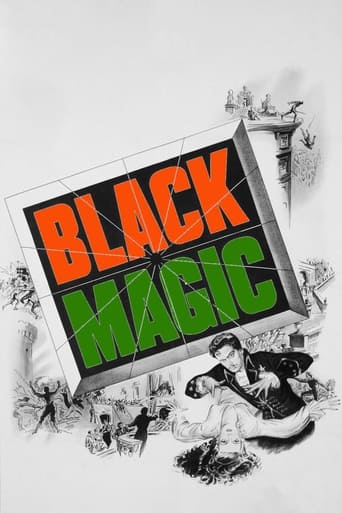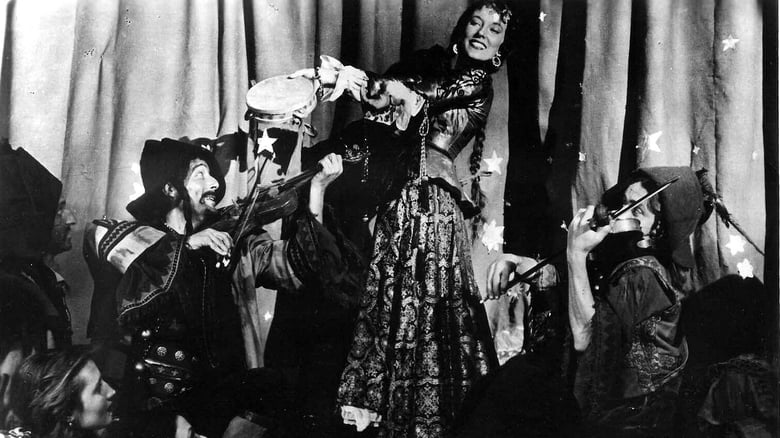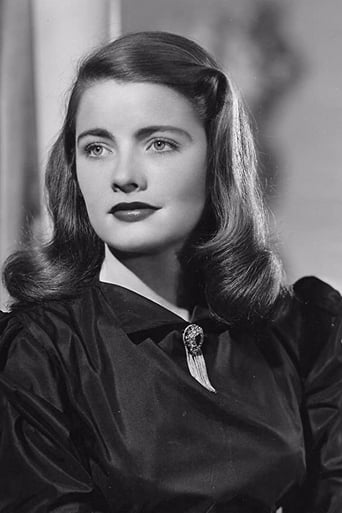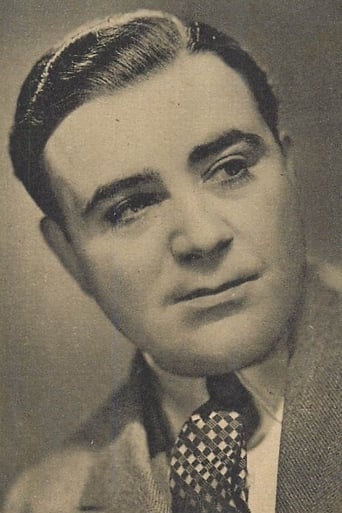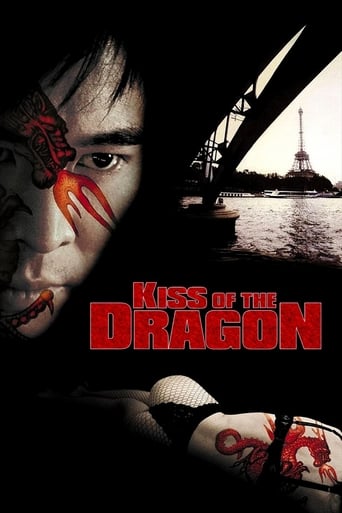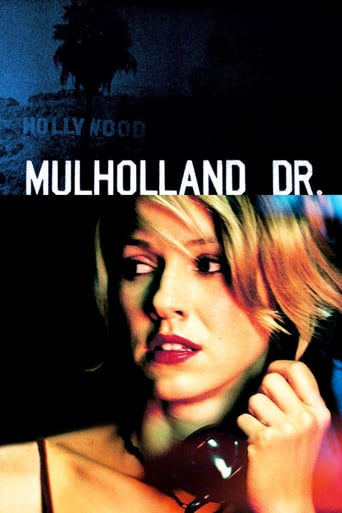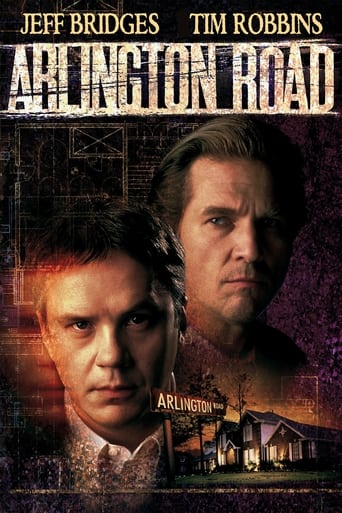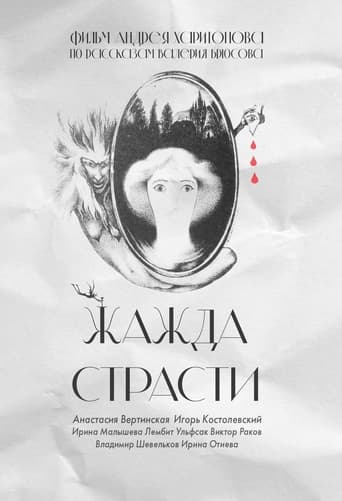Black Magic (1949)
A hypnotist uses his powers for revenge against King Louis XV's court.
Watch Trailer
Cast
Similar titles
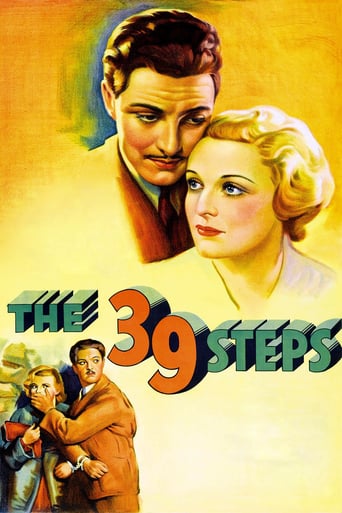



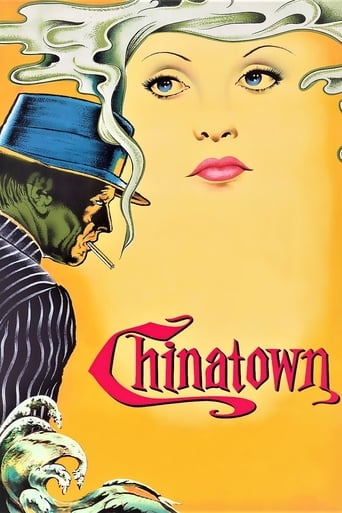
Reviews
Exactly the movie you think it is, but not the movie you want it to be.
It's the kind of movie you'll want to see a second time with someone who hasn't seen it yet, to remember what it was like to watch it for the first time.
This movie tries so hard to be funny, yet it falls flat every time. Just another example of recycled ideas repackaged with women in an attempt to appeal to a certain audience.
This film is so real. It treats its characters with so much care and sensitivity.
The necklace scandal of Marie Antoinette's was always an impossible subject to do anything about in literature, drama or film, since it was a totally undramatic intrigue of a rather foolish kind depending entirely on stupid people's duplicity. Cagliostro had nothing to do with it, except that he observed it from above with some glee and might have had a hand in its manipulation. The real architects and victims of the plot are not even mentioned in the film: the Cardinal de Rohan and the adventuress Jeanne de la Motte, who got brandished and banished for her part and kept writing hateful pamphlets against Marie Antoinette all her life although the Queen was entirely innocent - she never wanted to buy the necklace in the first place.But the scandal fascinated all the gossips and minds of Europe, and Alexander Dumas wrote three or four volumes of novels about a Cagliostro that was entirely dreamt up in his imagination. The real Cagliostro was perhaps the greatest and most typical of charlatans and nothing else, a Sicilian who tricked his way into society and up the ladder of politics in Paris and might really have been as megalomaniac as Orson Welles makes him, obsessed with power, but much more discreetly and furtively than Orson Welles' more swashbuckling character. He ended his life in destitution and prison.Alexander Dumas endows him with the power of hypnosis, which is pure fiction. Cagliostro was a great manipulator and cheat but was never serious about anything, rather something of a universal amateur, while Anton Mesmer was very serious about his more scientific research. In the film they meet in the beginning, and their coupling is perhaps the most interesting trait of the film, as they meet again in the end.Orson Welles has here the opportunity to play out his greatest powers as an actor, and he stops at nothing and enjoys every turn of it, especially in the grandiose finale. The court scene is a joke, though, falling flat on its own comedy - not even in pre-revolutionary France could such a court have been possible, and it's the only objectionable part of the film, due to a weak script. Even 18th century France would have laughed at it.They have done their best to turn an impossible story into a good film, and although nothing remains of reality in this hullabaloo of a national scandal, it's a great film, and Orson Welles makes one of his very best performances, if not the best after "The Third Man" - there is not much time between them. He was a great magician in reality, you can also see him performing in "Casino Royale" as Le Chiffre in the 1967 version and in "The Sailor from Gibraltar". He actually won some prizes for his art, and he always enjoyed practicing it, which you can see here what a professional he was.In order to put some drama into the story, it's all muddled up, and it's almost as impossible to follow all the turnings and intrigues of it as it was in reality, but it is very entertaining, lavish in its sumptuous costumery, and there is no drama lacking in the climax. The director was Gregory Ratoff, but you can see Orson Welles' hand in it as well in quite a few scenes.
Sometimes a film is bad enough to exert an almost irresistible fascination, and here's a case in point: an idiotic but colorful melodrama saved in part by Orson Welles' flamboyant performance as Count Alessandro di Cagliostro, a mystic gypsy hypnotist and infamous 18th century charlatan plotting to substitute a somnambulistic imposter to the French throne. Each labored twist of plot falls conveniently into place with an obstinate disregard for logic or coherence (notice how every peripheral character is neatly killed off during the rousing climactic chase), and the period dialogue is, to a word, laughable, in particular during the wacky prologue, where Ramon Burr (as author Victor Hugo) site bedeviled by the character taking shape on the pages before him. Welles' control over the material is obvious: he may have been only an actor for hire, but every baroque and stylish excess bears his unmistakable signature.
I saw this movie as a boy and it lingers after nearly fifty years as a haunting memory. It may be what we now call noir, but the twinkle in Welles' eye also lingers, suggesting a gris texture. That twinkle is the same that Harry Lime (cine verde?) flashed to Holly Martin in the alley scene of The Third Man (which was also made in Europe in 1949).Cagliostro was a brilliant montebank, alchemist,poseur and rascal of the first order. Welles gave him credibility, perhaps recognizing a kindred spirit down the centuries. I still remember the dark, cobbled streets and slick rainy roof tops of eighteenth century European cities -- scenes also not unlike the ones in The Third Man. The ending, I remember, was also bitter sweet.I wish that those who produce lesser know classics for DVD restoration might see this "foreign" movie; it is obviously available somewhere since there have been other reviewers. If they chose it I could have my childhood Madeleine experience, and others would have another Welles film to compare with the finite now available.
Not having readt the story by Dumas,I really don't feel qualified to comment as to this film's fidelity to the original work.However,it has very little,if anything,to do with the actual history.till,it's a superb example of a cross between swashbuckling and film noir. Has anybody ever commented on the fact that,when Orson Welles did historical or Shakespearean figures,he was really telling so much about himself.Noble,talented,gifted people,whose grandiose designs were brought low by their own tragic flaws.And how good looking he was.If he hadn't doubled his girth in later years,he could have played leading men similar to those of Walter Pidgeon. HISTORICAL NOTE:The real Cagliostro was exiled from France in 1789,following the business about the diamond necklace.He then moved to Rome,where he established a Masonic Lodge.Now,in Europe,the Masons are NOT viewed as a men's fraternal organization,as in the U.S.A.,but,rather,as a hot bed of treason,treachery,and heresy.Consequently,he was arrested,and sentenced to be executed.The Pope commuted the sentence to life imprisonment,and he spent the rest of his life in prison. MORAL:We really don't need anyone else to foul up our lives,now,do we?We happen to do a great job on our own.
